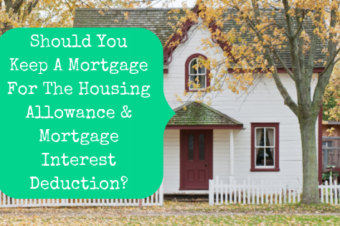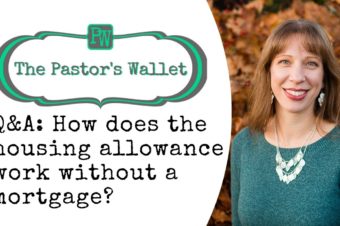
When the Federal Reserve slashed interest rates to near zero in response to the coronavirus crisis, everyone decided that it was a perfect time to refinance their mortgage. There were so many refinance requests that lenders had to artificially raise rates in order to lessen demand and give them a chance to keep up. Rates bounced around quite a bit but have spent the rest of the year near historic lows.
Because of this, a lot of people have refinanced their mortgages this year. If this is news to you, you should really look into refinancing because with a lower interest rate you could save thousands of dollars over the life of your loan.
What Is A Cash-Out Mortgage Refinance?
A choice you have to make when refinancing is how much you want your new mortgage to be for. One option is to borrow the same amount as you currently owe and just enjoy the benefits of a lower interest rate.
The second option is to take advantage of any equity you have in your home and take out a bigger mortgage. Borrowing more than your original mortgage balance allows you to pocket some cash in the process. That’s called a cash-out refinance because you are essentially taking cash out of your home’s equity.
How Does Cashing Out Equity Affect Your Housing Allowance?
Doing a cash-out refinance can affect your mortgage’s eligibility for the housing allowance. Usually, mortgage and interest payments are eligible for federal income tax exemption through the clergy housing allowance. They are eligible because you are using that money to provide a home.
The big question with a cash-out refinance is What are you doing with the cash? If you use it to remodel your bathroom or build a deck, then you are still using the money to provide a home. As such, your entire mortgage payment still qualifies for the ministerial housing allowance.
What if you use the money for something non-home related? What if you use it to pay down debt or send a child to college? This is when it gets complicated. If part of your mortgage is paying for non-housing expenses, then part of it is not eligible for the pastor’s housing allowance.
How To Calculate Housing Eligibility For A Cash-Out Refinance
Luckily, mortgage payments are not an all-or-nothing deal. Using some money for non-housing things doesn’t disqualify your entire mortgage payment from the ministerial housing allowance. Just a portion of it. You can claim a pro-rata portion of your payments as qualified expenses for the housing allowance.
Let’s say you owe $180k mortgage and your house is worth $250k. You decide to refinance and borrow $200k so that you can pay off your student loans. Your new loan is broken down into $180k of housing costs and $20k in student loan costs. Only 90% of the mortgage was used for housing costs, so only 90% of your mortgage payment is eligible for the clergy housing allowance.
If your principal and interest payment is $1,000 a month, then only $900 of that qualifies for the housing allowance. Most of us don’t only make principal and interest payments, though. My monthly mortgage payment also includes escrow money for property taxes and homeowners insurance.
For this example, let’s say you’re like me and your monthly payment is $1,400, with the extra $400 covering insurance and taxes. Does that mean that you can only claim $1,260 for the housing allowance (90% of $1,400)?
Nope! Your property taxes and homeowners insurance are 100% eligible for the housing allowance even if your mortgage principal and interest payments are not. For accurate calculations, you have to break down your monthly payment into the portion that is used 100% for housing expenses (insurance and taxes) and the portion that is only partly used for housing expenses (mortgage principal and interest).
In this example, only $900 of the principal and interest payment is eligible for the housing allowance while the entire $400 for taxes and insurance is. So, $1,300 of the $1,400 monthly payment counts towards the housing allowance. If you just do 90% of the whole payment, you’ll be selling yourself short and paying some unnecessary taxes.
How The IRS Verifies Accuracy
After explaining this to a friend, he asked me what happens if you just claim it all. What happens if you take cash out of your mortgage for non-housing expenses but continue to include 100% of your payment as a housing allowance?
In most cases, nothing. The IRS does not check up on you and verify the accuracy of your housing allowance. That is until you get audited. If you cheat on your housing allowance, they may uncover it in an audit.
But just because the IRS isn’t watching you doesn’t mean that God isn’t. It isn’t necessarily a matter of whether or not you’ll get caught, it’s a matter of character. You get to decide for yourself how you want to proceed.



![[Video] Q&A: Do Additional Principal Payments Qualify for the Housing Allowance?](https://pastorswallet.com/wp-content/uploads/2022/03/Copy-of-Do-Pastors-Really-Have-to-Pay-15.3-for-SECA-340x226.jpg)

14 Responses
Dennis
June 22, 2020Thank you! Another great article!
Amy
June 23, 2020You’re welcome, Dennis. I’m glad you enjoyed it.
Ryan
December 12, 2020Hi Amy, great post. Here’s a thought experiment. Curious what you might think:
A minister bought a house 15 years ago, and just paid off her mortgage. This minister is interested in obtaining an additional house to generate rental income.
Scenario 1: The minister gets a cash-out refinance on her current property and uses the proceeds to buy a rental property, which happens to be next door. This new mortgage per your rule above does not qualify for the housing allowance.
Scenario 2: The minister keeps her current property as a rental and buys the house next door with a traditional mortgage, and moves in. Presumably, this new mortgage qualifies for the housing allowance.
Let’s say that these houses cost 200k, and the minister is in the 12% bracket. Over a 15 year mortgage, the tax savings between the two scenarios is ~$20,000.
Do you think I have this right?
Amy
December 15, 2020Ryan, your scenarios are correct. Expenses to purchase a rental would not qualify for the housing allowance, but those on a new home, even if you turned the old one into a rental, would qualify.
Nick
January 27, 2021Amy,
Your article was very helpful. Thank you for the work you put into the research and the time spent writing it.
What about this scenario? I just paid off my current home and want to obtain a cash-out mortgage on it so that I can purchase a family cabin. Can the P & I on the cash-out mortgage be covered under the housing allowance even though the mortgage will be obtained for the full purchase of the cabin?
Amy
January 29, 2021Nick, the housing allowance only applies to your primary residence, so taking out money to use for a cabin would not be eligible.
Nick
January 29, 2021Thank you for your quick response, Amy. Your knowledge in this area is very helpful.
Amy
January 29, 2021You’re welcome! I’m glad to be of service to you.
Bryce
August 27, 2021How about this scenario: pastor has more than 80% equity in current home, does a cash-out refinance to be able to purchase new home without a sale contingency, then does a cash-out on new home after current home sells. Could the mortgage on the new home be counted as housing allowance?
Amy
August 30, 2021Bryce, my understanding of the rules would be the same, that unless the cash taken out was used for housing expenses (not to pay you back for not taking a mortgage), it is not eligible. However, it is up to interpretation and what matters most is the IRS’ interpretation. Even if you wanted to do a cash-out refinance on Home #1, you could take out just enough for a down payment and still have a mortgage on home #2 that would be eligible for the housing allowance.
Josh
October 15, 2021Thanks for answering all these questions!
I have a bit of a complicated scenario. So here it goes!
I did a cash-out refi for $100,000 in June 2021. My old loan amount was $60k, the new one is $160k. Following your example, does that mean 37.5% of my new mortgage payment counts for HA?
Amy
October 19, 2021Josh,
If only $60k out of $160k of your mortgage was for housing expenses, then you are correct, only 37.5% of your principal and interest payments qualify for the housing allowance. Your taxes and insurance still qualify, so if they are paid through your mortgage, make sure you claim 100% of them instead of just 37.5%.
Steven
October 20, 2022Hi Amy,
Good article. If someone has their home paid off. If they sell their current home and buy a new home with a new mortgage for 80%, is the new mortgage eligible for the housing allowance? If they sell and rent, is the rent eligible? Are there any considerations with the cash from the original home?
Thank you!